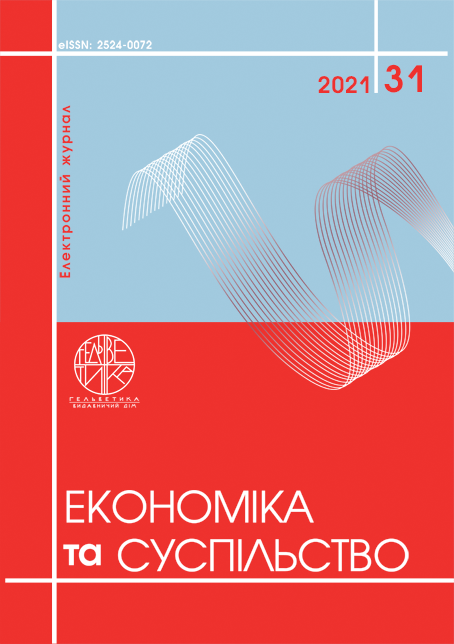ТЕХНОЛОГІЇ МОТИВАЦІЇ ПЕРСОНАЛУ ПІДПРИЄМСТВ У СУЧАСНИХ УМОВАХ
Анотація
У статті розкрито поняття «мотивація» та контекст, який його характеризує. Розглянуто види мотивації і особливості для підтримки та розвитку праці персоналу, що стимулюють трудову діяльність. Визначено способи, які можуть призвести до ймовірного зниження та підвищення трудової діяльності працівників підприємств. Представлено способи надання оцінок щодо визначення мотиваційного рівня праці для персоналу. Визначено, що «потреба» – є невід’ємною складовою у частині людини, що потребує її підтримки та подальшого вдосконалення якості мотиваційного рівня у працівників трудової діяльності. Описано технології для мотивації персоналу, які допоможуть забезпечити їхні мотиви та потреби, що ефективно та позитивно вплинуть на їх подальші якості трудових відносин на користь статусів підприємств та зроблені певні висновки.
Посилання
Мотивація персоналу : Підручник. Київ : КНЕУ, 2002. 6 с.
Колот А.М., Цимбалюк С.О. Мотивація персоналу : підручник. Київ : КНЕУ, 2011. 16, [3] с.
Варій М. Й. Загальна психологія : підр. [для студ. вищ. навч. закл.] 3-тє вид. Київ : Центр учбової літератури, 2009. 1007 с. ISBN 978-966-364-817-0
Гриненко А.М., Джурбій Ю.О. Соціальні фактори мотиваційного механізму персоналу підприємства. Вісник Кам'янець-Подільського національного університету імені Івана Огієнка. Економічні науки. 2012. Вип. 6. С. 405–408. URL: http://nbuv.gov.ua/UJRN/vkpnuen_2012_6_107
Колективний договір. URL: https://uk.wikipedia.org/wiki/Колективний_договір
Калина А.В. Економіка праці : Навч. посібник. Київ : МАУП, 2004. 272 с.
Motyvatsiia personalu [Staff motivation: Textbook]. Kyiv: KNEU, 2002. 6 p.
Kolot A.M., Tsymbalyuk S.O. (2011) Motyvatsiia personalu [Staff motivation: a textbook]. Kyiv: KNEU, 16, [3] p.
Variy M.Y. (2009) Zahalna psykholohiia [General psychology]. Kyiv: Center for Educational Literature, 1007 p. ISBN 978-966-364-817-0
Grinenko A.M., Jurbiy Y.O. (2012) Sotsialni faktory motyvatsiinoho mekhanizmu personalu pidpryiemstva [Social factors of the motivational mechanism of the personnel of the enterprise]. Bulletin of Kamyanets-Podilsky National University named after Ivan Ogienko. Economic sciences. Vol. 6. P. 405–408. Access mode: http://nbuv.gov.ua/UJRN/vkpnuen_2012_6_107
Kolektyvnyi dohovir [Collective agreement]. Access mode: https://uk.wikipedia.org/wiki/Колективний_договір
Kalina A.V. (2004) [Labor Economics: Textbook. manual]. Kyiv: IAPM, 272 p.


